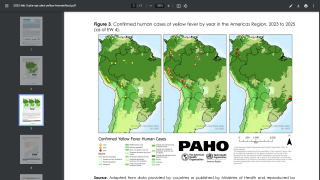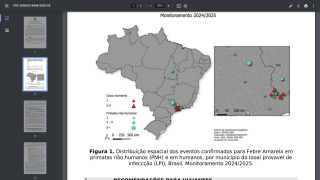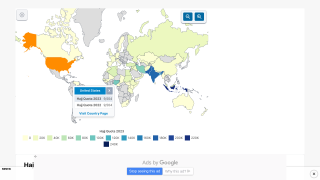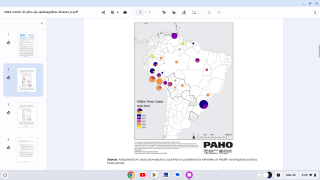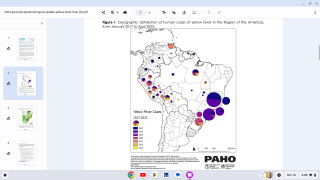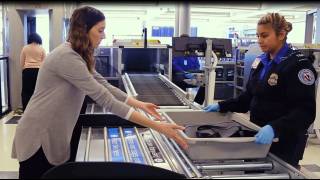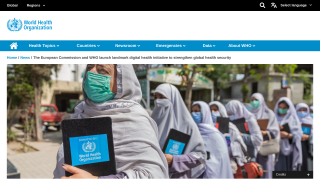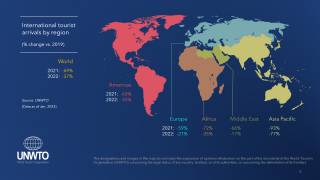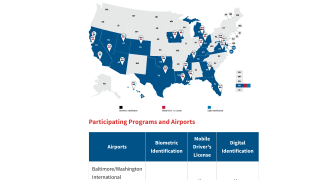World Pharmacists Day 2019: "Safe & Effective Medicines For All"

The International Pharmaceutical Federation (FIP) announced that September 25 is the one day each year ‘to advocate for the role of the pharmacist in improving health in every corner of the world.’
First celebrated in 2009 by the FIP, the 2019 theme ‘aims to promote pharmacists’ crucial role in safeguarding patient safety through improving medicines use and reducing medication errors.’
“Today, more than ever, pharmacists are charged with the responsibility to ensure that when a patient uses a medicine, it will not cause harm”, says FIP President Dominique Jordan, in a digital statement.
Health service delivery, health workforce and access to essential medicines are 3 of the World Health Organization's (WHO) essential health system strategic building blocks. Further information about FIP’s Workforce Transformation Program (WTP) can be found here.
An example of this innovative WTP in Indonesia demonstrates the unique and measurable value pharmacists deliver each and every day.
In Indonesia, 80,000 pharmacists will soon benefit from a national framework for advanced practice development and professional recognition, as a result of the FIP’s Workforce Transformation Program.
A recent worldwide issue pharmacists are helping resolve is the distribution of ‘fake vaccine news.’
On September 6th, the WHO said in a press release that it ‘welcomes the commitment by Facebook to ensure that users find facts about vaccines across digital networks where people seek out information and advice.’
The WHO said ‘vaccine misinformation is a major threat to global health that could reverse decades of progress made in tackling preventable diseases.’
The WHO wrote ‘All healthcare workers giving vaccines have a responsibility to listen to and try to understand a patient's concerns, fears, and beliefs about vaccination and to take them into consideration when offering vaccines.’
Another worldwide change coming from the pharmacist community is ‘leveraging technology to empower all patients to live life to the fullest.’
“Just as industrialization did in the 20th century, a new tsunami ― technology and artificial intelligence ― is hitting pharmacy,” said FIP’s president Mr. Dominique Jordan, in a May 2019 press release.
The WHO released new recommendations on 10 ways that countries can use digital health technology, accessible via mobile phones, tablets, and computers, to improve people’s health and essential services.
Additionally, the WHO has also established innovative partnerships for building digital health capacity through the WHO Regional Office for Africa.
Over the years, WHO has released a number of resources to strengthen digital health research and implementation, including the Health Assessment and Planning for Scale toolkit, a handbook for Monitoring and Evaluation of Digital Health, and mechanisms to harness digital health to end TB.
In the USA, at the systems level, healthcare providers and pharmacists have difficulties ascertaining which vaccines their adult patients need because of incomplete vaccination records.
The Immunization Information System (IIS) standard is the framework with which all vaccination providers are encouraged to implement specific evidence-based strategies to improve the uptake of vaccines by their adult patients.
This framework includes designing patient flow to include immunization services, recommending and offering vaccines during the same clinical visit, utilizing standing orders to routinely administer vaccines, and using the IIS to document patient vaccination records and to assess their vaccination status.
“Integrating immunization-related software capabilities based on workflow and usability principles within EHRs and other clinical software can lead to improved clinical and patient decision-making,” said Joyce Sensmeier MS.
The HIMSS Immunization Integration Program (IIP) was developed to advance the integration of immunization-related capabilities within EHRs and other clinical software. Immunization programs in all states have the authority to collect vaccination records, which create ‘lifelong IIS.’
“We believe that the widespread adoption of immunization-related capabilities across EHRs will not only support better care but also result in better health outcomes,” said Sensmeier.
Pharmacist vaccine news
- Clinical Pharmacists Deliver Positive Hep C Adherence
- Can Ohio Reduce Its Hepatitis A Outbreak?
- Chickenpox Vaccination Does Not Increase Herpes Zoster Outbreak
- Trust Flu Information Delivered By Health Professionals
One of the global issues the IIS can help resolve is ‘fake - Yellow Cards.’
The Yellow Card is endorsed by the WHO and is required for entry to certain countries. And recently the East African Community (EAC) countries announced in June 2019 ‘visitors will be required to show proof of yellow fever vaccination.’
This travel document was originally called the “Certificate of Vaccination or Revaccination Against Yellow Fever” and was first issued exclusively for the Yellow Fever virus, as an annex to the International Health Regulation (IHR) (1969).
In 2007, a new model called the ‘International Certificate of Vaccination or Prophylaxis’ came into force with the advent of the International Health Regulation (2005).
But, a report published in The Lancet on July 20, 2019, found it is possible to obtain a government-issued Yellow Fever vaccination certificate without actually getting the Stamaril vaccine.
This report is unfortunate news since Yellow Fever virus outbreaks are very serious, and continue in various countries.
Furthermore, this Lancet report said ‘11 unvaccinated Chinese nationals were infected with Yellow Fever in Africa and then traveled to China, importing the disease for the first time.'
“Correcting misinformation about the vaccines is hard. The best evidence suggests that the most effective way of dealing with misinformation is not spreading it in the first place,” shared Crockett Tidwell, RPh, CDE, Clinical Services Manager, Vaccine Specialist with United Supermarkets Pharmacy.
“This means people benefit from receiving the right information, at the right time, from a healthcare provider they trust…. a local pharmacist,” concluded Tidwell.
Published by Precision Vaccinations
Our Trust Standards: Medical Advisory Committee







